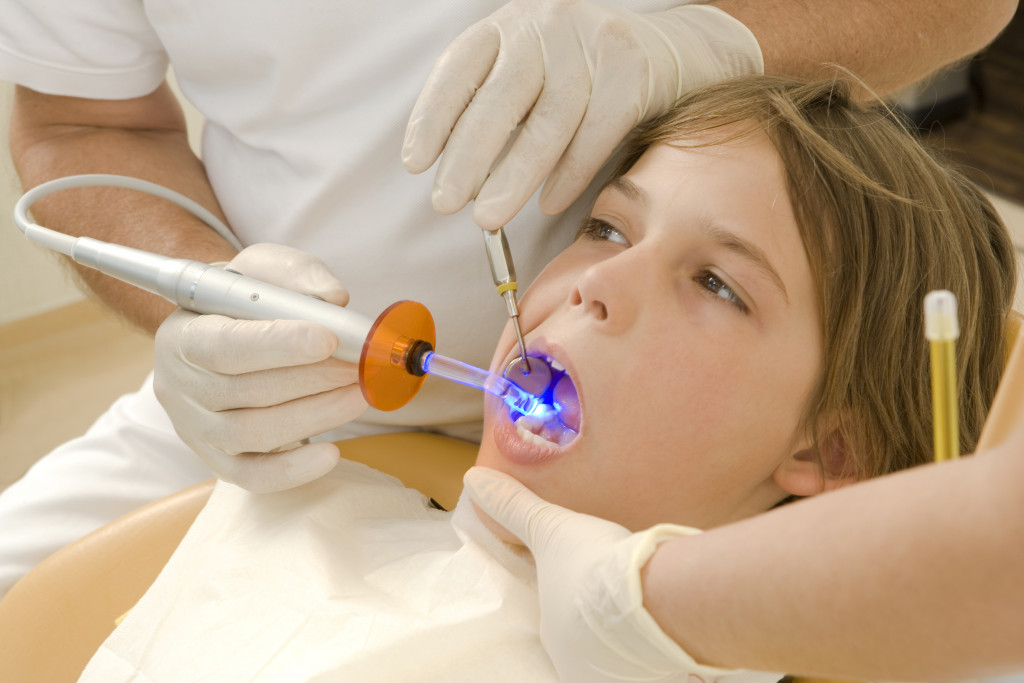Dental anxiety is a common phenomenon that affects millions of people across the globe. It can range from mild feelings of unease to extreme fear and panic. This fear may arise for various reasons and can be a significant barrier to receiving proper dental care. Dental anxiety can prevent people from seeking routine dental checkups, dental procedures, or even visiting a dentist. If you are one of those who avoid dental appointments due to dental anxiety, this blog is for you. Here’s a look into dental anxiety, its causes and symptoms, and how to deal with it.
What is Dental Anxiety?
Dental anxiety, also known as dental phobia or dental fear, refers to the fear or anxiety some experience when visiting a dentist or receiving dental care. It is a common issue ranging from mild uneasiness to intense fear and panic.
People with dental anxiety may feel nervous, tense, or stressed at the mere thought of attending the dentist. They may also experience physical symptoms such as increased heart rate, sweating, trembling, or difficulty breathing. These individuals may avoid dental appointments, leading to neglected oral health and potential complications.
The causes of dental anxiety can vary from person to person. Some common factors include:
- Previous negative experiences: A past traumatic or painful dental experience can create lasting fear and anxiety.
- Fear of needles or injections: Many dental procedures involve injections or anesthesia, which can trigger anxiety.
- Fear of pain: The fear of experiencing pain during dental procedures is common.
- Loss of control: Lying back in the dental chair with limited control over the situation can cause anxiety for some individuals.
- Embarrassment or self-consciousness: Some people feel anxious about the appearance of their teeth or fear being judged by the dentist.
- Sensory sensitivity: Strong dental smells, sounds of dental instruments, or the sensation of having tools in the mouth can be overwhelming for some.

Ways to Deal With Dental Anxiety
There are many ways to deal with dental anxiety. Here are some of them.
Choose the Right Professional
First off, it’s important that you choose the right professional for your child. They can determine how comfortable they can be during the procedure and how their experience will be over time. An experienced pediatric dentist can offer you these benefits. These professionals are not only trained in the latest techniques but they are also experienced in working with children who have dental anxiety.
Communicate with Your Dentist
The most effective way to overcome your fear to talk to your dentist regarding your concerns. A caring and compassionate dentist will understand your apprehension and find ways to make your appointment easier. Together, you can devise a plan for your treatment, choose a suitable level of sedation, and decide on a signal to stop the procedure if you feel distressed.
Use Deep Breathing Techniques
Before entering the dental clinic, use deep breathing techniques to help calm yourself. Take a few deep breaths, hold them in, and release the air slowly. This technique helps slow your heart rate, reduce muscle tension, and relieve stress.
Listen to Music
Many dental clinics offer music or television to their clients to help ease their anxiety. If you are too nervous to focus on the sounds, bring your headphones or earbuds and play your favorite songs or a guided meditation. This distraction can help reduce the anxiety caused by the dental procedure.
Consider Sedation
For patients with severe dental anxiety, sedation dentistry is an option. This involves using relaxation medication or nitrous oxide to help ease anxiety before a dental procedure. Sedation dentistry can help control anxiety levels, reduce pain, and make the procedure less daunting.

Practice Positive Self-talk
Positive self-talk may sound simple, but it can be highly effective when dealing with dental anxiety. The next time you feel nervous or tense, remind yourself why you are there and focus on the positive aspects of taking care of your dental health. Reframe the situation as an opportunity to improve your overall health.
The Advantages of Getting Rid of Dental Anxiety
Dental anxiety is common, but it shouldn’t prevent you from getting the necessary care. Reaching out for help is essential to overcoming dental fear and improving your oral health.
Overcoming dental anxiety can have many advantages, including:
- Improved oral health – You can maintain better oral hygiene with regular checkups and preventive treatments, reducing the risk of cavities and gum diseases.
- Greater confidence – Having a healthy mouth boosts self-confidence in social situations.
- Financial savings – Regular dental checkups help detect problems early on when they are more affordable to repair or treat.
- Better overall health – Dental issues such as gum disease can increase the risk of other serious medical conditions such as heart disease or stroke.
- Peace of mind – Knowing that your oral health is in good shape can give you peace of mind.
Taking control of your dental anxiety can be challenging, but the benefits are worth it. You can overcome your fears and enjoy improved dental health with the right professional support and a positive outlook. Remember to take things one step at a time and practice positive self-talk to ease your anxiety.
